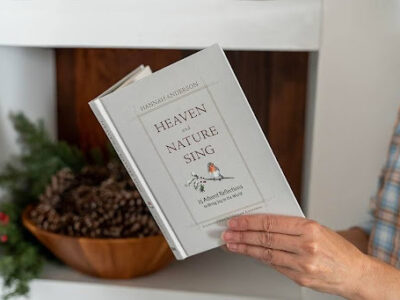FernGully: What to Expect
If you didn’t see FernGully when it first came out, either because you were too young or too old or perhaps not even alive yet, you’re in for a real treat. It’s available to rent or buy through Google Play, Amazon Instant Video, iTunes, and Vudu. Produced by Kroyer Films, Inc., Youngheart Productions, FAI Films and 20th Century Fox, the film stars a knockout cast of voice actors including Robin Williams, Tim Curry, Samantha Mathis, Christian Slater, and more.
The movie follows Crysta, a fairy in the Australian rainforest, who accidentally shrinks a logger named Zak. Together, the two of them try to save the rainforest from loggers and Hexxus, a pollution villain. Robin Williams plays the voice of Batty Koda, a bat that claims that humans have done experiments on him, which explains his bizarre and unusual behavior.
Finding the Love: Faithifying Your Viewing
Back in 1992, I was at the earnest and impressionable age of 10, still three years away from the cynicism of teenagehood. We had recently learned in science class about “Reduce, Reuse, Recycle,” and because of those lessons, I passed several long and boring summer days collecting litter along the backroads of our rural town, horrified at all of the plastic and trash that had been tossed out the windows of passing vehicles.

FernGully took it up a notch for me. It was the first time I can remember becoming aware that there was anything happening to rainforests, or animals, or why this should matter to me. Critics accused FernGully of being too moralistic, and even the producer said the film was “blatantly environmental,” which to some adults back in the 90s would have been a turnoff. But for me, it broadened my horizons, literally if not subconsciously. I went to Australia when I was 18 to study abroad. I took a keen interest in rainforests and the Great Barrier Reef. Recycling is a standard part of my family’s life.
The slogan “Reduce, Reuse, Recycle” was born sometime around 1976, when Congress passed the Resource Conservation and Recovery Act to increase recycling and conservation efforts as waste became a problem. It’s been 45 years since the passage of the Resource Conservation and Recovery Act, and today it feels odd not to see a blue or green recycling bin sandwiched next to the trash cans at restaurants and other public venues. But it wasn’t that long ago that people didn’t think twice about tossing their empty cans and McDonald’s bags out their window as they drove across town.
Societal change is slow.
Back in the Old Testament, God’s people fled Egypt and slavery only to wander in the desert wilderness for forty years. “‘Because they have not followed me wholeheartedly, not one of those who were twenty years old or more when they came up out of Egypt will see the land I promised on oath to Abraham, Isaac and Jacob—not one except Caleb son of Jephunneh the Kenizzite and Joshua son of Nun, for they followed the Lord wholeheartedly.’ The Lord’s anger burned against Israel and he made them wander in the wilderness forty years, until the whole generation of those who had done evil in his sight was gone” (Numbers 32:11-13 NIV).
The Israelites who emerged from slavery were afraid. They had lived under and relied upon the Egyptians for their livelihoods, broken and shackled as they were. Their children, however, were raised in freedom, groomed by decades of wilderness and reliance on the Lord of Lords to lead them and provide for them. Their perspectives were different, and so they led different lives.
This is the way that faith—and all of our values—is passed down from generation to generation. As parents, we communicate what we feel is important to us, but then a strange and miraculous thing happens: they take those values and build upon them.
It should be no surprise that the millennial generation is socially conscious, embraces ethical spending and experiences, are health conscious, financially conscious, and spiritually conscious. The seeds of these characteristics were planted in us by the previous generation—Reduce, Reuse, Recycle; FernGully; and more have provided us a wider lens to view our world. We’re just taking it to the next level, advancing our faith and living out our values the way that we were taught, to try to make a better world.
Much of what we sow in our kids will reap a harvest of some kind in the future: whether good or ill. Proverbs 22:6 says, “Start children off on the way they should go, and even when they are old they will not turn from it.” Whatever seeds we sow now will inevitably bloom and ripen into fruit later. To me, FernGully feels like one of those early seeds, a movie that made me care about the earth and the world around me, to see my responsibility and my role in its preservation and flourishing. Today, my faith makes me hopeful that our generation will continue to build upon the good work that has come before, to bring it to completion for generations to come, until the day of Christ Jesus (Philippians 1:6).
The Garden that is this Earth was given to us by God as told in Genesis 1 and 2, and part of that beautiful Garden are our rainforests. We are called as a species to take care of this Garden, this Earth. FernGully is a glimpse and a reminder to consider what our choices are doing to the Garden, and how we can influence those choices locally and systemically, for a better, more sustainable world.





 Copyright
2025
Root and Vine
Copyright
2025
Root and Vine